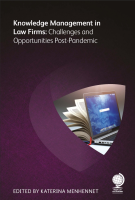Mining for unity? The Artemis Accords and the development of international space governance
20 April 2022

Nicholas Gould, Partner at Fenwick Elliott LLP and Visiting Professor at King’s College London
Nicholas Gould, Olivia Liang, Oliver Weisemann from Fenwick Elliott LLP explore space mining, the Artemis Accords and the development of international space governance.
In August of this year, NASA plans to launch its ‘Psyche’ mission to gather data on the composition of 16 Psyche, a large asteroid located in the asteroid belt between Mars and Jupiter. The asteroid is speculated to contain metals of a value of up to US$10 quintillion, so more than 100,000 times that of the global economy.
Space mining is the extraction of minerals and other raw materials from asteroids and other minor planets in outer space. Currently, this remains a hypothetical prospect. However, recent technological developments may bring the exploitation of these vast stores of resources closer to reality. In April last year, a Beijing-based private space mining company, Origin Space, launched the world’s first mining robot into space. The robot (known as NEO-01) was a prototype, launched to test various functions relevant to mining space objects.
Whether coincidentally or not, nation states have also taken steps over the last few years to reframe parts of the decades-old body of space governance regarding resource extraction. The signing of the Artemis Accords by several major global powers including the United States, the United Kingdom and Japan represents the recent step in this regard. The Accords have been conceptualised as part of the United States’ Artemis programme, which aims to return humans to the moon by 2024.
The Artemis Accords are bilateral agreements and are not binding instruments of international law. But they could have lasting influence on the development of international space law and practice. Many of the principles in the Artemis Accords represent re-commitments to the founding principles of outer space law enshrined in the 1967 United Nations Outer Space Treaty and its subsidiary agreements. The accords include commitments to transparency between spacefaring nations, the sharing of scientific data and emergency assistance of other nations’ vessels and personnel.
However, the Artemis Accords arguably depart from the Outer Space Treaty in a key way. While the position on the extraction and use of resources from celestial bodies in the Outer Space Treaty itself is ambiguous, the Accords take a far more definite position.
Article I of the Outer Space Treaty affirms that space exploration “shall be carried out for the benefit and in the interests of all countries, irrespective of their degree of economic or scientific development, and shall be the province of all mankind”. Article II specifically provides that outer space and celestial bodies are “not subject to national appropriation by claim of sovereignty, by means of use or occupation, or by any other means”.
The 1979 UN Moon Agreement arguably goes one step further in providing that space resources are to be shared equitably amongst all countries. The rule against appropriation in the Outer Space Treaty clearly prohibits nations from declaring sovereignty over space bodies and claiming them as their own. However, the position is much less definite in respect of resource extraction. Are countries prohibited from extracting resources from an asteroid even if they have no intention to declare sovereignty over the underlying “land”? What of businesses and individuals? The Outer Space Treaty leaves these questions (and others) open for interpretation.
The United States has previously taken the position that the Outer Space Treaty does not prevent commercial exploration and exploitation of space resources. That position was essentially confirmed with the Commercial Space Launch Competitiveness Act, passed in May 2015 with the stated purpose of allowing US industries to “engage in commercial exploration and exploitation of space resources”. The Act stated that the United States was not, through the Act, asserting sovereignty over any celestial body.
Perhaps unsurprisingly, the Artemis Accords expressly uphold this position. Section 10 of the Accords affirms “that the extraction of space resources does not inherently constitute national appropriation under Article II of the Outer Space Treaty”.
This leaves the state of outer space governance at somewhat of a crossroads. The Artemis Accords were made without the input of the United Nations and currently have only fifteen signatories – notable absences being the major spacefaring nations of China, Russia and India and key members of the European Space Agency, including France and Germany. Several of these countries are unlikely to accede to an instrument perceived by some to be overly US-centric.
That said, it is likely that many of the countries listed above are in broad agreement with the principle on resource extraction affirmed in the Artemis Accords. Russia and China have both already stated their ambitions to mine space. It may also be that the Artemis Accords reflect – and are possibly intended to accelerate – a growing consensus among nation states as to the extent to which resource extraction in outer space is permissible under the Outer Space Treaty.
It remains to be seen whether the United Nations will take this opportunity to update the Moon Agreement. The Moon Agreement has been widely criticised for its imprecision and is not ratified by most of the countries currently possessing space launch capabilities.
It is not yet clear when space mining will become viable. However, the ungoverned nature of outer space clearly raises the prospect of conflict in terms of ownership and questions of environmental governance. In that regard, it is apparent that national and international leadership, and laws, will be needed to address these challenges.
Nicholas Gould, Partner, Fenwick Elliott LLP, visiting Professor, King’s College London & contributor to Outer Space Law: Legal Policy and Practice, Second Edition
Olivia Liang, Associate, Fenwick Elliott LLP
Oliver Weisemann, Paralegal, Fenwick Elliott LLP













Any comments - send us an email